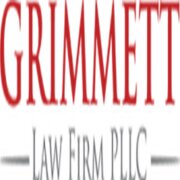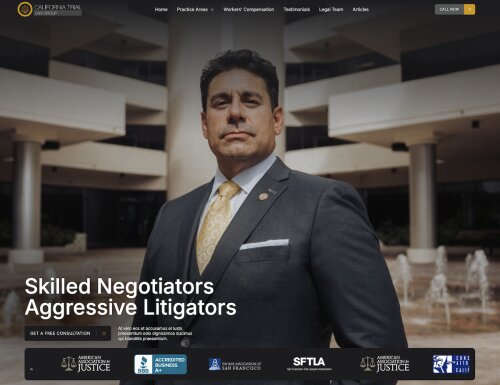Best Commercial Litigation Lawyers in Georgia
Share your needs with us, get contacted by law firms.
Free. Takes 2 min.
Or refine your search by selecting a city:
List of the best lawyers in Georgia, United States
About Commercial Litigation Law in Georgia, United States
Commercial litigation in Georgia refers to legal disputes arising from business and commercial relationships. These disputes can involve breach of contract, partnership disagreements, business torts, debt collection, intellectual property, and other issues commonly encountered by businesses and entrepreneurs. Georgia courts handle commercial litigation in both state and federal systems, and the outcomes can have substantial financial and operational impacts on the parties involved.
Why You May Need a Lawyer
There are various situations where a business or individual may require a commercial litigation attorney in Georgia, including:
- Breach of contract claims involving suppliers, customers, or service providers
- Disputes between business partners, shareholders, or members of LLCs
- Claims of fraud, misrepresentation, or unfair business practices
- Employment-related disputes and trade secret violations
- Intellectual property conflicts involving trademarks, copyrights, or patents
- Debt collection and defense against collections
- Real estate or property disputes in a business context
- Issues involving mergers, acquisitions, or dissolutions
Legal representation is important because commercial litigation often involves complex laws, high stakes, and strict deadlines that can be difficult to navigate without professional guidance.
Local Laws Overview
Georgia commercial litigation is governed by both state statutes and federal regulations. Key aspects include:
- The Georgia Uniform Commercial Code (UCC) regulates commercial transactions, including the sale of goods and secured transactions.
- The Georgia Business Corporation Code governs disputes involving corporations, LLCs, and partnerships.
- Common law principles arising from Georgia court decisions also play a significant role in how commercial disputes are resolved.
- Civil procedure is governed by the Georgia Civil Practice Act, which sets forth the rules for litigating disputes in state court.
- Alternative dispute resolution, such as mediation and arbitration, is frequently encouraged or required before proceeding to trial.
- Breach of contract claims are subject to statutes of limitation, which can vary by type of contract or dispute. For most written contracts, the deadline to file a lawsuit in Georgia is six years.
Understanding these rules is crucial because mistakes in procedure or filing can delay your case or negatively affect your outcome.
Frequently Asked Questions
What is commercial litigation?
Commercial litigation is the process of resolving legal disputes that arise in a business context. This includes conflicts about contracts, business relationships, debts, and business operations.
How long does commercial litigation take in Georgia?
The duration depends on the complexity of the case, the issues involved, and the court's schedule. Cases can settle early or last several months to years if they go to trial.
What should I do if I receive a lawsuit from another business?
You should consult an attorney immediately to avoid missing important deadlines. Do not ignore the lawsuit, as failing to respond can result in a default judgment against you.
Can I resolve my dispute without going to court?
Yes. Many commercial disputes are resolved through negotiation, mediation, or arbitration without a court trial.
What types of damages can I recover in a commercial litigation case?
Depending on the case, you may recover compensatory damages (for direct losses), consequential damages (for related losses), punitive damages (in cases of intentional wrongdoing), or specific performance (a court order requiring a party to fulfill a contract).
How much will commercial litigation cost?
Costs can vary widely based on the case's complexity, the attorney's fee structure, and whether the matter settles early or proceeds to trial. Request a fee agreement and cost estimate from your attorney.
Are jury trials available for commercial litigation cases in Georgia?
Yes, parties in Georgia can request a jury trial for most commercial litigation cases unless the dispute is subject to arbitration or limited to a judge's decision by law.
What is the statute of limitations for commercial claims in Georgia?
For most written contracts, you have six years to file a lawsuit from the date of breach. Other types of claims may have different deadlines, so consult an attorney promptly.
Can a business sue another business in Georgia if both are located outside the state?
If the contract was performed in Georgia, or the dispute has sufficient connections to Georgia, local courts may have jurisdiction. Jurisdiction is a complex issue best discussed with an attorney.
What happens if the other party refuses to comply with a court order?
The court can enforce its orders through contempt proceedings, fines, or other legal remedies to ensure compliance.
Additional Resources
- Georgia State Bar Association: Provides lawyer directories and legal resources
- Georgia Superior Court: Handles most business and commercial disputes
- Georgia Uniform Commercial Code: Laws governing commercial transactions
- Georgia Department of Law - Consumer Protection Division: Manages certain business and trade practice complaints
- Local business chambers and mediation centers: Offer dispute resolution support and referrals
Next Steps
If you believe you need legal assistance with a commercial dispute in Georgia, here are steps to follow:
- Gather all relevant documentation, such as contracts, emails, and records of communication
- Document key facts, timelines, and the parties involved
- Contact a Georgia-based commercial litigation attorney for a consultation
- Discuss potential strategies for resolution, including negotiation, mediation, or court action
- Always pay close attention to any legal deadlines or court notices
- Follow your attorney's advice and keep open lines of communication during the process
Seeking professional legal advice early can help protect your business interests and ensure compliance with Georgia law.
Lawzana helps you find the best lawyers and law firms in Georgia through a curated and pre-screened list of qualified legal professionals. Our platform offers rankings and detailed profiles of attorneys and law firms, allowing you to compare based on practice areas, including Commercial Litigation, experience, and client feedback.
Each profile includes a description of the firm's areas of practice, client reviews, team members and partners, year of establishment, spoken languages, office locations, contact information, social media presence, and any published articles or resources. Most firms on our platform speak English and are experienced in both local and international legal matters.
Get a quote from top-rated law firms in Georgia, United States — quickly, securely, and without unnecessary hassle.
Disclaimer:
The information provided on this page is for general informational purposes only and does not constitute legal advice. While we strive to ensure the accuracy and relevance of the content, legal information may change over time, and interpretations of the law can vary. You should always consult with a qualified legal professional for advice specific to your situation.
We disclaim all liability for actions taken or not taken based on the content of this page. If you believe any information is incorrect or outdated, please contact us, and we will review and update it where appropriate.
Browse commercial litigation law firms by city in Georgia
Refine your search by selecting a city.














